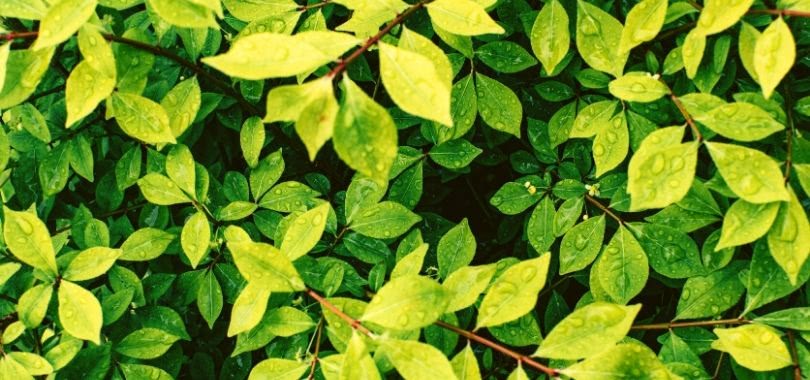An environmental science degree equips you with the knowledge and skills necessary for a diverse array of careers. This is a great option for you if you’re interested in anything environment-related. The careers you can choose from range from horticulture and marine sciences to sustainability, waste management, and conservation. Here are just a few of the many career paths you can pursue with an environmental science degree.

Environmental Engineer
Environmental engineers focus on protecting the environment by reducing and managing waste and pollution. They work in a variety of settings, from construction sites and manufacturing plants to urban planning offices. Their primary responsibility is to ensure that various organizations are in compliance with environmental regulations.
As part of their job, environmental engineers plan, design and implement technologies and processes to prevent, control or clean up environmental contamination. This is a highly specialized career that uses the principles of biology, chemistry, engineering and soil science to develop practical solutions to combat environmental hazards.
Ecologist
Ecologists closely study the relationships between various organisms and their native environments. For example, they may research how the flora and fauna in deserts, forests, oceans or other ecosystems interact with each other and their environment. Ecologists spend extended periods of time in the field collecting and analyzing data, and assessing various habitats. They use their findings to design effective solutions to environmental problems.
These professionals typically work for state and federal government natural resource organizations. There are several sub-specialties within this career, such as aquatic ecologists, community ecologists among others.

Biochemist
Biochemists specialize in the study of living things at a molecular level, which find applications in medicine, environmental conservation and agriculture. Their studies help determine the environmental origins and causes of various diseases. This is vital for reducing the risk of disease outbreaks and also for treating the resultant conditions. These studies are also crucial to many aspects of sustainability.
This is a very broad career with several sub-specialties.
Medical biochemists conduct in-depth studies to understand how the cells of the human body reacts to different diseases.
- Clinical biochemists work in hospitals and private clinics where they test lab samples. Others conduct medical research to improve laboratory equipment and practices.
- Analytical biochemists analyze biological samples to determine the presence and quantity of substances such as toxins or steroids.
- Plant biochemists specialize in the study of plant processes such as photosynthesis and others.
- Comparative biochemists compare how different organisms or species perform similar functions.
Geomorphologist
Geomorphologists investigate and analyze natural topographic features in an attempt to understand how land formations change and the causes behind these changes. They use their findings to predict possible future environmental phenomena such as earthquakes and volcanic eruptions. Where possible, they also work to develop solutions to prevent or minimize potential environmental hazards.
Geomorphologists spend most of their time conducting research and analyzing data, both in the field and in the lab. They may research generalized terrains or specialize in specific aspects such as glaciers, desert regions, or volcanic islands.
Oceanographer
Oceanographers study different aspects of the ocean, with particular emphasis on how humans impact the ecosystems within the oceans. They are committed to fighting the mitigating effects of overpopulation, climate change, and over-fishing.
There are several specialties within oceanography, with each specialty focusing on one aspect of the vast, complex ocean ecosystem.
- Geological oceanographers study the floor of the ocean to better understand the deep oceanic trenches and undersea seismic activity.
- Chemical oceanographers focus on the chemical composition of the ocean water in order to monitor pollution levels.
- Physical oceanographers study the waves and currents to learn more about the movements of the oceans.
- Marine biologists focus on studying different marine ecosystems and the unique inhabitants of each.
- Oceanographers spend their time equally in various oceanic environments and in the laboratory.
Environmental Biologist
Environmental biologists are dedicated to protecting ecosystems from the adverse effects of human activities. They conduct habitat and environmental impact assessment. They also monitor environmental conditions and ensure pollution levels are in compliance with state and federal laws.
Environmental biologists travel extensively to remote locations where they conduct studies under all types of climatic conditions. They also spend significant time in laboratories analyzing the samples they’ve collected from various sites.
This is an interdisciplinary field involving chemistry, biology, archaeology, geology, and anthropology.
Environmental Biotechnologist
Environmental biotechnologists specialize in using microorganisms to reduce contamination and improve the environment. They use their knowledge of biology and engineering to first identify the unique pollutants at each contaminated site. They then use appropriate microbes and customized processes to remediate that area.
These specialists are also responsible for developing more sustainable processes to prevent and minimize pollution. They can choose to further specialize in environmental microbiology, molecular biotechnology, animal cell culture or environmental biochemistry among others. Environmental biotechnologists are employed by the paper, textile, food, energy and chemical industries.
Paleontologist
Paleontologists examine fossils to better understand study the history and process of evolution and past extinctions. They extract this information from fossilized bones and preserved traces of animals and plants that perished hundreds of years ago. Paleontologists do both field and laboratory work, using a variety of tools to dig up and analyze fossilized samples. Their studies help us understand the past so we don’t make the same mistakes.
With a growing interest in environmental conservation and sustainability, there is a huge demand for qualified environmental scientists. Knowing that you are doing your bit for the environment can be hugely satisfying. As an added bonus, most of these jobs are high paying too.
Interested in checking out other dream careers? Visit College Raptor’s free Career Center and learn all about jobs.





